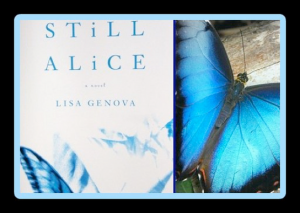Monday afternoon, I went to see Mom. When I arrived at my brother’s house where she lives, she was wearing the same coral colored sweatshirt she’s worn almost every day since we got rid of the ugly gray cardigan she insisted on wearing all the time. She greeted me and said, “I’m so glad you came a day early. You shouldn’t be out in the storm that’s coming tomorrow.”
I asked her where she wanted to go for lunch, and she said she was hungry for pancakes and sausage. “IHOP or Village Inn?” I asked.
“Don’t ask hard questions,” she replied. “You decide. But afterwards, I need to get a new pocket calendar and Christmas cards. And it’s a good thing you came a day early. You shouldn’t be out in the storm tomorrow.”
When we finished eating, we went to Target. “Why are we here?” she asked.
“For Christmas cards and a pocket calendar,” I said.
“Right. And it’s a good thing you came a day early. There’s a storm coming tomorrow.” After she picked out a calendar she asked, “What else did I need?”
“Christmas cards.”
“Right, It’s a good thing you came a day early. A big storm is coming tomorrow.”
We went back to my brother’s and worked on her checkbook. While she recorded her automatic withdrawals and deposits, Mom said, “I’m so glad you came a day early. You shouldn’t be out in the big storm that’s coming.”
Sigh.
All Mom’s idiosyncrasies can be hard to tolerate, even though my head knows she has early stage Alzheimer’s and can’t help repeating herself. But recently, a wonderful novel, Still Alice, by Lisa Genova increased my understanding of what’s happening to Mom in a way other literature about the disease hadn’t.
The story is told from the perspective of fifty-year-old Alice, a brilliant Harvard professor diagnosed with early onset Alzheimer’s. Throughout the novel, readers experience Alice’s mental decline and frustration with her. Though she fails steadily and rapidly in the course of the narrative, the essence of Alice remains and by the end of the book, she’s still Alice, perhaps more Alice than she had ever been before.
Reading the book affirmed who my mother is. Intelligent and determined as Alice, and failing more slowly, she is still Dorothy. As this disease strips away her memories and her reasoning ability, it is also revealing a vulnerable, loving and funny woman she never allowed me to see when she was well. She’s still Dorothy, more Dorothy than she’s been since childhood when adult inhibitions and expectations had not yet limited her Dorothyness.
If someone you love has Alzheimer’s, you need to read this book. It will increase your compassion and patience when your mother, father, or sibling is irrational or stubborn. Even if you don’t know someone with the disease, you will find value in Still Alice. Genova’s writing is well-crafted, and she has created a worthy, fragile and unforgettable heroine.
Still Alice is more than a good read. It’s a reminder of the essence of personality, of the constancy of love, and the value of human life. I needed that reminder. Maybe you do, too.


